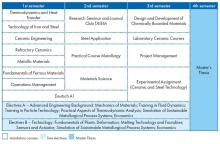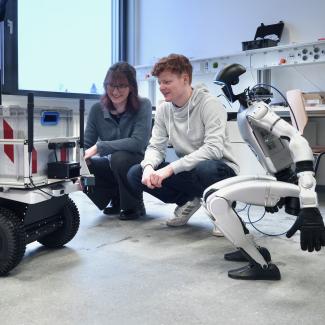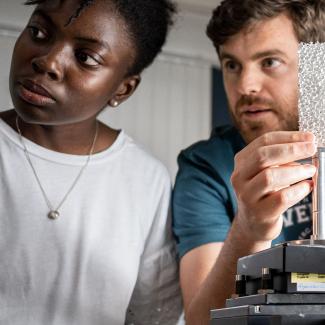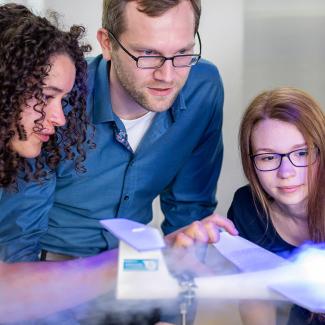Technology and Application of Inorganic Engineering Materials
Inorganic engineering materials such as steel and ceramics cover all strategic industrial sectors and are key materials for the transport sector, energy technology, mechanical and plant engineering, and the construction industry. A precise understanding of the mechanical, thermal, chemical, and functional properties at nano, micro, and macro levels as well as the chemical and physical interactions at the interfaces of inorganic engineering materials is an unlimited tool for their continuous development and technological optimization.
In the first semester, core modules are held on metallic, ceramic, and refractory materials, thermodynamics and mechanics of materials as well as training in particle technology and fluid dynamics. This is followed in the second and third semesters by in-depth modules and further training in the technology and application of materials and the simulation of metallurgical processes. In addition, students learn to apply their theoretical knowledge to real-life applications in laboratory and practical courses. The fourth semester is reserved for the Master's thesis
Please note that this is an English-language Master's degree programme. Applications can be submitted online via the university portal and are possible from 1 January to 15 April.
- Faculty
-
Faculty of Mechanical, Process and Energy Engineering (Faculty 4)
- Degree
-
Master of Science (M. Sc.)
- Standard period of study
-
4 Semester
- Part-time possible
-
No
- Start of studies
-
Winter semester
- Admission requirement
-
- A first professionally qualifying university degree of at least six semesters in mechanical engineering, process engineering, environmental engineering, energy technology, materials science and materials technology, natural sciences, or comparable
Language skills
- English language skills: TOEFL 90 points internet-based test, or IELTS 6.5 overall score.
- Course language
-
English
Iron and steel industry, metal processing industry, ceramic and refractory industry, recycling and raw materials industry, universities and research institutions.



